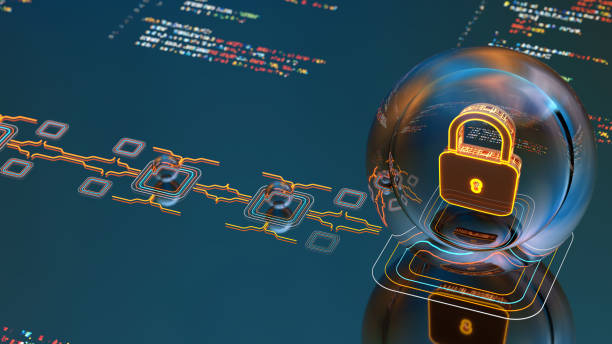Blockchain technology is a revolutionary and disruptive force that has the potential to change the way we think about data security, transparency, and trust. It is a decentralized, secure and transparent digital ledger that records transactions on a network of computers, eliminating the need for a central authority. The potential uses of blockchain technology are vast and far-reaching, and it has already begun to change industries such as finance, supply chain management, and digital identity verification. The decentralized nature of blockchain allows for a more democratic and transparent system, as each node in the network has access to the same information, making it more secure and resistant to censorship. Blockchain technology has the potential to revolutionize the way we conduct business and manage data, making processes more efficient, transparent, and secure. In this blog, we will explore 10 of the most important uses for blockchain technology and how it can be applied to various industries. By understanding the potential of blockchain, we can make a more informed decision about how to leverage this technology for our business or organization.
Cryptocurrency:

Blockchain technology is the backbone of digital currencies like Bitcoin and Ethereum. It allows for the creation of secure, decentralized digital currencies that can be used for online transactions. The decentralized nature of blockchain-based currencies allows for peer-to-peer transactions without the need for a central intermediary, like a bank. This can reduce the costs and barriers associated with traditional financial systems and can provide greater access to financial services for people who are currently unbanked or underbanked.
Supply Chain Management:
Blockchain technology can be used to create a tamper-proof record of the entire supply chain process, from the origin of a product to its final destination. This can increase transparency and trust among all the participants in the supply chain. Blockchain technology can be used to track the movement of goods and can provide real-time visibility into inventory levels, shipping status, and other key data points. This can help to improve efficiency and reduce the risk of fraud and errors.
Digital Identity:

Blockchain technology can be used to create secure digital identities that can be used for online transactions, voting systems, and other applications. This can help to prevent identity fraud and increase the security of online transactions. Digital identities on blockchain can be used for various purposes such as online voting, e-commerce, and can also be used to provide proof of identity in various industries.
Smart Contracts:
Blockchain technology allows for the creation of smart contracts, which are self-executing contracts with the terms of the agreement written directly into the code. This can automate complex processes and reduce the need for intermediaries, which can streamline processes and reduce costs. Smart contracts can be used in various industries such as finance, real estate and supply chain management to automate processes, reduce costs and increase efficiency.
Digital Voting:

Blockchain technology can be used to create secure, transparent, and tamper-proof digital voting systems. This can increase voter turnout and reduce the risk of voter fraud. Blockchain technology can be used to create digital voting systems that are secure, transparent and tamper-proof. This can increase voter turnout, reduce the risk of voter fraud, and can also increase accessibility for people who may have difficulty voting in person.
Real Estate:
Blockchain technology can be used to create tamper-proof records of property ownership and transactions, which can streamline the process of buying and selling property. Blockchain technology can be used to create digital records of property ownership, transactions, and other key data points. This can make the process of buying and selling property more efficient, and can also help to reduce the risk of fraud and errors.
Banking and Finance:

Blockchain technology can be used to create more efficient and secure financial systems. It can be used for cross-border payments, remittances, and can also be used to create decentralized lending platforms. Additionally, blockchain technology can be used to create digital assets, such as tokenized stocks, which can be traded on decentralized exchanges. Blockchain technology can be used to create more efficient and secure financial systems that can help to reduce costs, increase access to financial services, and can also be used to create new financial instruments and services.
Healthcare :
Blockchain technology can be used to create secure, tamper-proof medical records that can be accessed by authorized personnel. This can improve patient care and reduce the risk of medical errors. Blockchain technology can be used to create digital medical records that are secure and tamper-proof. This can provide healthcare providers with real-time access to patient data, and can also help to reduce the risk of medical errors.
Cybersecurity:

Blockchain technology can be used to create secure, decentralized systems that are resistant to cyber-attacks. This can be used to protect against data breaches and other cyber threats. Blockchain technology can be used to create secure, decentralized systems that can be used to protect against cyber-attacks. This can be used to protect against data breaches, identity theft and other cyber threats.
Internet of Things (IoT):
Blockchain technology can be used to create secure, decentralized networks that can be used to connect IoT devices. This can create a more efficient and secure system for managing IoT devices. Blockchain technology can be used to create secure, decentralized networks that can be used to connect IoT devices. This can create a more efficient and secure system for managing IoT devices, and can also be used to create new applications and services.
In conclusion, blockchain technology has the potential to revolutionize a wide range of industries, from finance to healthcare to supply chain management. Its decentralized, secure and transparent nature makes it a powerful tool for various use cases. However, it’s important to approach it with caution and to conduct thorough research before investing in or implementing blockchain solutions. Additionally, it’s important to consider the regulatory environment and to understand the legal implications of using blockchain technology. With the right approach, blockchain can provide significant benefits and can help to create a more efficient, secure and transparent digital economy. As the technology is still in its early stage, there will be more innovation and development in the future, it’s important to stay informed and be ready to adapt to the change.
